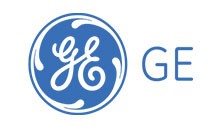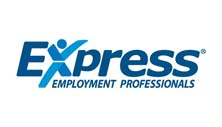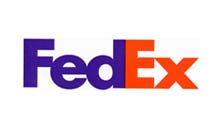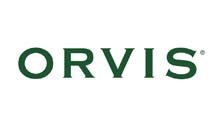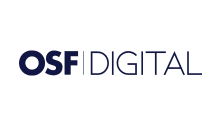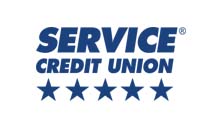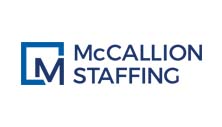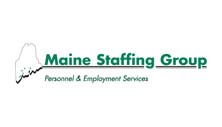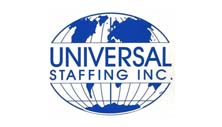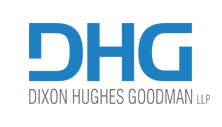How Assessments Promote Employee Development

Expedite Onboarding
Evaluate what new hires already know and create onboarding plans that focus on material they don’t know.

Identify Knowledge Gaps
Pinpoint areas where employees need more training and develop personalized training programs that help them grow in their current positions and with the company.

Internal Training
When you implement new software, change procedures, or adopt new policies, use skills assessments to ensure employees absorbed the material and identify areas where additional training is needed.

Identify “Promotable” Employees
The best candidate may already work for your company. Use skills assessments to identify employees who have the right knowledge and experience, or would with additional training.
Decrease Turnover
Studies show that training increases worker productivity, improves employee satisfaction and motivation, and staff retention.
Learn How Employee Development Improves Training Outcomes

DEFINE SKILLS LEVELS
Observe employees performing normal duties, identify the skills they need that are relevant to their job responsibilities, and rank them from beginner to expert based on skill level.

BUILD THE ASSESSMENTS
Determine the current skill levels held by employees in each area. Then configure role-based tests by selecting subjects, subtopics, and questions that are relevant to potential changes in their job role.

ANALYZE THE RESULTS
Use results-by-topic and results-by-question reports to identify knowledge & skills gaps and design personalized training programs.

TRAIN AND RETEST
Train employees according to current skill level, reassess them when training is complete using another version of the test with different questions, and retest as required.
Identify Employee Training Needs for Existing Staff Members and New Hires
Research shows that organizations that invest in professional employee development can increase productivity by over 200%. This is why modern companies use skills assessments for internal training, to expedite onboarding for new hires, implement customized employee training and development programs that address knowledge “gaps,” and to identify employees who are ready for a new challenge.
Why Use Skills Tests For Employee Development
- Including video response questions in assessments enables you to evaluate the entire candidate, not just skills and experience.
- By asking candidates to provide a video “resume” you may uncover valuable skills and experience that would be an asset to your organization.
- If a job requires extensive customer contact, you can evaluate candidates’ verbal communication skills for English and other languages.
- Allow hiring managers and entire hiring teams to rate applicants’ responses from one to 10 stars based on criteria you establish.
- Verify candidates’ identity by asking them to display a driver’s license or other picture ID.
- Present candidates with common situations they would encounter on the job to evaluate their problem-solving skills.
Looking for More?
Learn about specific solutions designed for your needs, read client success stories and review integration options.
Why eSkill
eSkill provides the most relevant and valid pre-employment assessment tests for skilled jobs.
How it Works
Small business and enterprise solutions for evaluating candidates’ skills quickly, easily, and accurately.
Integrate Your System
Already have an ATS, LMS or HRIS system? Learn how to integrate eSkill with your existing systems.
Subscribe to Our Newsletter for Updates
Why Employee Assessments Are Essential for Workforce Development Today
The popularity of employee assessment tools is growing among organizations that want to improve hiring outcomes. A study by the Society for Human Resource Management (SHRM) shows that 82% of companies use employee assessments. Two popular types of assessments are job simulations, used by 54% of respondents, and behavioral assessments, which 51% of the companies use.
Why Organizations Work with Pre-Employment Testing Companies
Organizations work with pre-employment testing companies to improve workforce development. Some of their motivations are:
- Identifying Skills Gaps: Assessments diagnose areas where employees need further training and development to perform their roles effectively.
- Tailoring Training Programs: Data from employee assessment tools ensures training is customized to build specific skills to help employees succeed based on their strengths and weaknesses.
- Tracking Progress Over Time: Ongoing employee assessments measure competency improvements so training programs can be adjusted accordingly.
- Predicting Future Employment Needs: Organizational employee assessment tools predict upcoming skills that will be required so training can proactively align the workforce.
- Promoting Continuous Learning: Consistent employee assessments promote a culture focused on talent development rather than static job descriptions.
- Enabling Self-Assessment: Employees can use employee assessment tools to self-diagnose areas of strength and weakness and take initiative for self-improvement.
- Building Leadership Pipelines: Succession planning and promotion decisions can rely strongly on data from employee assessments to identify next-generation leaders.
What Are the Four Types of Employee Assessment Tools?
The four main types of employee assessment tools used for employee development and talent management are:
- Skills Assessment Tests: These measure proficiency in skills required for jobs like computer programming, accounting, and machine operation to evaluate technical competencies.
- Cognitive Ability Tests: These employee assessments measure thinking abilities and aptitudes like numerical reasoning, verbal skills, and spatial relations.
- Personality Assessments: These tools help categorize an individual’s personality traits, behaviors, and work style preferences. They provide insight into cultural fit.
- Situational Judgment Tests (SJT): SJTs present job-related scenarios and evaluate judgment, problem-solving skills, and decision-making abilities based on the responses.
Employee assessment tools provide multifaceted data to guide development across both the soft and hard skills required in job roles and organizations.
What Are Some Employment Assessment Examples?
Organizations that implement the eSkill Talent Assessment PlatformTM, an industry-leading solution, can create assessments by choosing validated, subject- and job-based assessments from the eSkill Assessment Library. HR teams can use pre-prepared employment assessments or customize them by removing irrelevant questions and designating question difficulty levels. Examples of popular assessments include:
- Customer Service Representative
- Administrative Assistant
- Office Manager
- Maintenance Technician
- Medical Transcriptionist
- Paralegal
- Web Designer
- Database Developer
- Network Engineer
- 911 Dispatcher
- Firefighter
Why Are Employee Assessments Important?
HR leaders often ask why employee assessments are important. They are important because they help HR teams identify strengths and weaknesses, diagnose skill gaps, determine areas where further development is needed, and identify strengths that can be leveraged. This enables targeted training and placement.
Moreover, employee assessment tools can be used to guide career development. HR teams can use assessment data to identify emerging leaders with high upside. They can craft personalized development plans and confirm promotion decisions by objectively revealing abilities and ensuring a candidate’s skills align well with the demands of a specific job role.
In addition, organizations have learned that utilizing employee assessment tools can reduce bias. Well-designed assessments apply consistent measurement standards and reduce subjective bias in talent decisions. So, candidates and employees are evaluated more equitably based on assessment performance data.
These assessments are also essential in helping HR leaders evaluate training effectiveness because pre- and post-training assessments measure the impact and ROI of learning programs.
Lastly, employee assessments boost engagement because employees feel they lead to growth opportunities. They provide objective insights into talent needs, capabilities, culture fit, and potential. This benefits employees through growth and companies through better hiring and promotion decisions.
How Artificial Intelligence (AI) is Changing Hiring
Artificial intelligence (AI) tools are a recent innovation that is changing hiring. According to a Pew Research study, 62% of respondents believe artificial intelligence will significantly affect jobs in the next 20 years. So, when HR teams ask what are seven essential assessment tools to incorporate AI into hiring, we cite these as examples:
- Automated resume screening can quickly scan resumes and job applications to filter out unqualified candidates or flag promising ones for further review. This makes the initial screening process much faster.
- Chatbots and conversational AI allow companies to automate initial outreach and screening conversations with candidates.
- Some companies use AI tools to automate or assist with video and audio interviews. The AI software can guide the conversation or analyze responses to assess candidates.
- AI algorithms can generate predictive analytics by combing through data for both current employees and past candidates to predict traits and qualifications that lead to success on the job. Recruiters can use these insights to find stronger matches.
- Utilizing properly designed AI tools can reduce biases that influence hiring decisions. For example, tools that anonymize applications during the initial review can reduce unconscious bias.
- Information candidates list on their resumes may or may not be accurate. AI allows candidates to take tests and simulations to validate their abilities for a job. This provides more data for recruiters.
- AI can reduce hiring bias and connect companies with candidates whose abilities and potential match the open positions more closely. However, it is important to design AI tools properly to avoid introducing new biases.
How Employee Assessments Help Companies Identify Top Candidates
Companies increasingly use employee assessments to evaluate candidates and identify the best fit for open roles. Here are some ways assessments help with hiring:
- Personality Tests: Personality tests help companies evaluate work style preferences and tendencies. For example, someone who scores high in extroversion may be better suited for a sales role than an introvert.
- Cognitive Ability Tests: Employee assessment tools that measure abilities like numerical reasoning, verbal skills, and spatial relationships can gauge the raw aptitudes needed for certain jobs. High scores can flag candidates with strong potential.
- Job Skills Tests: Skills tests that are directly related to the required abilities for a role can validate and measure a candidate’s existing capabilities. This predicts on-the-job performance.
- Culture Fit Assessments: Surveys to determine alignment with company values and workplace preferences can indicate the likelihood of meshing with the existing team.
- Emotional Intelligence Tests: EI and EQ scores measure self-awareness, empathy, and conflict management abilities.
- Project Simulations: Mock projects and assignments can evaluate strategic thinking, analytical skills, creativity, and other high-level skills in action.
When designed and weighted appropriately, employee assessments provide additional data points for recruiters beyond resumes and interviews. This results in more informed hiring decisions.
How Employee Assessments Help Companies Identify Internal Talent
Employee assessments can help companies better identify and utilize the talent they already have:
- Skills Assessments: Testing for proficiency across various skills reveals employee strengths that may not be obvious from role descriptions alone.
- Personality Testing: Understanding work preferences and tendencies can uncover good fits for openings based on culture and day-to-day needs.
- 360 Reviews: Feedback from peers, managers, and reports highlights development areas and unrecognized competencies.
- Potential Assessments: Some tests measure untapped abilities and future capabilities to identify high-potential employees.
- Interest Inventories: Surveys can reveal passions and motivations that may align with other roles or projects in the company.
- Training Program Testing: Performance in corporate training programs effectively auditions internal talent for bigger opportunities.
- Focus Groups: Discussions with employees can provide insights into talents and interests not fully utilized.
- Cross-training: Giving employees exposure to other roles reveals additional capabilities not being tapped.
Look beyond current job titles to identify untapped potential within the organization to expand the talent pipeline internally before looking externally.
Tips For Creating Effective Employee Assessment Forms
Have you ever wondered, “How do I create an employee assessment form?” The first step is identifying the goals and skills you want to measure. These should tie directly to job responsibilities and business objectives.
- Use a combination of open-ended questions and rating scales. Rating scales (e.g., 1–5) allow quantifiable measurements, while open-ended questions permit detailed feedback.
- Include space for self-assessment, manager assessment, and peer feedback. This provides multiple perspectives.
- Align assessment factors to observable behaviors vs. subjective traits. For example, “communicates clearly” rather than “good communicator.”
- Have some forward-looking elements like developing skills, future potential, and interests. Don’t just focus on the past.
- Leave room for open discussion and goal-setting along with the form. The form is a tool to enable conversation.
- Use clear, simple language. Avoid corporate jargon. Define any terms clearly.
- Allow space for open comments and examples that illustrate ratings.
- Keep the form as concise yet comprehensive as possible. Avoid having an overly long form.
- Maintain strict confidentiality of the results.
Regular assessments, such as annual reviews, are essential. Provide training for managers on how to conduct assessments effectively. Update the forms regularly based on feedback and needs.
What Are Three Examples of Questions for Managers to Ask During a Performance Review?
We’re often asked, “What are three examples of questions for managers to ask during a performance review?” Every situation is different, but here are three examples of questions managers can ask employees during a performance review:
- What goals from the last review period are you most proud of accomplishing, and why? This allows the employee to share key successes and lets the manager understand their values and sources of motivation.
- What parts of your job responsibilities are the most challenging? How can I help you improve in those areas? This surfaces potential struggles the employee may have and opens the door to discuss the support they need.
- Where do you see opportunities to enhance your skills and experience over the next year? This encourages employees to consider areas for continued growth and career development goals.
The focus should be on open dialogue about progress, goals, and growth while providing support as the manager.
Performance Appraisal Strengths Examples
Managers list strengths and weaknesses when they complete performance reviews. Here are some performance appraisal strength examples they often cite:
- Strong Technical Skills: Excels using tools, systems, equipment, and technologies required for the role. Quickly masters new technical platforms.
- Communication Abilities: Clearly conveys complex ideas or data to diverse audiences verbally or in writing. Actively listens and constructs persuasive arguments.
- Creative Problem-Solving: Develops innovative solutions and processes. Thinks outside the box. Identifies opportunities in challenges.
- Collaboration: Builds positive relationships. Supports teammates and promotes teamwork. Values diverse perspectives and feedback.
- Initiative: Independently identifies areas for improvement and proposes solutions. Pursues learning and growth opportunities proactively.
- Results-Driven: Focused on objectives. Tenacious about overcoming roadblocks and delivering measurable outcomes.
Here are some examples of weaknesses managers and supervisors often cite in performance reviews:
- Technical Skills: Needs further development in software, tools, or equipment critical for the role. Requires additional training to master.
- Time Management: Has difficulty completing tasks efficiently or on schedule. Struggles with prioritizing appropriately.
- Communication: Written or verbal communication lacks clarity. Has trouble tailoring messages for different audiences.
- Critical Thinking: Jumps to conclusions rather than analyzing thoroughly. Has trouble anticipating potential issues.
- Initiative: Relies heavily on the manager for direction. Rarely proposes new ideas or process improvements proactively.
- Collaboration: Prefers working independently. Can be reluctant to collaborate with colleagues or incorporate feedback.
- Attitude: Projects negativity that drains team morale and energy. Creates friction with colleagues.
Get Started with Employee Assessments
Employee assessment tools like the eSkill Talent Assessment PlatformTM are essential for workforce talent development in today’s dynamic hiring environment. They help organizations simplify and streamline recruiting and improve the quality of hire. Many companies also find they can reduce hiring costs and decrease time-to-hire. Many eSkill clients have decreased hiring costs by 70% and reduced time-to-hire by 60%.
Do you want to learn how employee assessments can help you improve workforce development? Contact us to request a demo.


